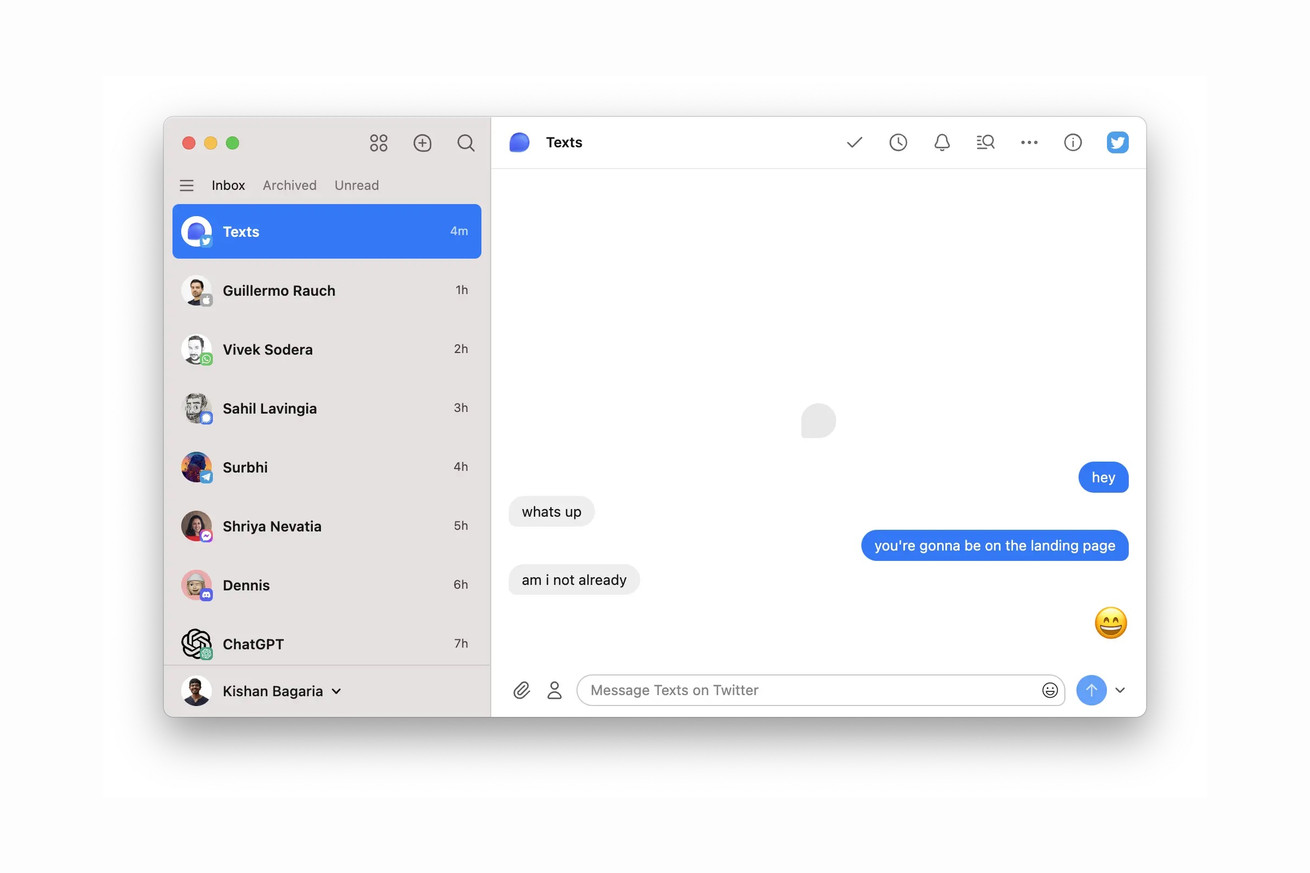
Automattic, the company that runs WordPress.com, Tumblr, Pocket Casts, and a number of other popular web properties, just made a different kind of acquisition: it’s buying Texts, a universal messaging app, for $50 million.
Texts is an app for all your messaging apps. You can use it to log in to WhatsApp, Instagram, LinkedIn, Signal, iMessage, and more and see and respond to all your messages in one place. (Beeper is another app doing similar things.) The app also offers some additional features like AI-generated responses and summaries, but its primary purpose is to unify your many inboxes into a single interface.
Matt Mullenweg, Automattic’s CEO, says Texts is not just a product acquisition but also the beginning of a huge new investment for the company. So far, he says, Automattic’s two main areas of focus have been on publishing and commerce — now, messaging is the company’s third pillar. “I like to pick areas I feel are so fundamental to the human condition that I can work on this the rest of my life,” he says. “Self-publishing, commerce, and messaging covers a good chunk of all human activity, and they’re also three areas where I think an open-source solution is necessary for the long term.”
In that long term, Mullenweg says he’s bullish on solutions like Matrix, which offers a decentralized and open-source messaging network, and other up-and-coming standards for messaging. He’s already thinking about how Texts might gently nudge people toward more open protocols over time. But for now, “I think the most user-centric thing to do is not try to pick one of those standards and force people into it, but actually support them all and let the market and users decide.”
Mullenweg points to two other things he likes about Texts in particular. First, its founder, Kishan Bagaria: “Kishan is, I think, a generational tech genius who we’ll be talking about for many decades to come,” Mullenweg says. The second is Texts’ security model, which relies on on-device encryption rather than storing a copy of all your messages in the cloud. “Just as an engineer, I can’t ethically support” the cloud-first model, Mullenweg says. He also thinks the cloud security model might give existing messaging apps a reason to shut down Beeper and other attempts at interoperability. “I think the argument that there shouldn’t be interop is more difficult to make, politically, especially with regulators,” he says. “But the technical argument for why it’s not as secure is a good one for why to block things.”
The first thing the Texts team will do at Automattic, it seems, is finish its mobile app. “To do this on mobile with push notifications, and efficient battery, and everything, is pretty tricky,” Mullenweg says. “But I think we’ve cracked it in a way that maintains all the end-to-end encryption, and where Automattic has no access to your keys, your anything.” Right now, Texts is a $15 a month power-user tool, but Mullenweg says that could change over time. “There might be some limited free version in the future,” he says. “But if you’re serious about this, you’ll want the paid — for less than like the price of one streaming service or two cups of coffee a month, you’ll get something that you’ll be able to use for hours a day.”
Mullenweg and Automattic see a big future for messaging, as more online interaction shifts away from public-first social networks and toward things like group chats. Hardly anyone has figured out how to build a meaningful and sustainable business from chat, but Mullenweg thinks it’s possible. And he thinks it starts with making your messaging a little less messy.

Aucun commentaire:
Enregistrer un commentaire